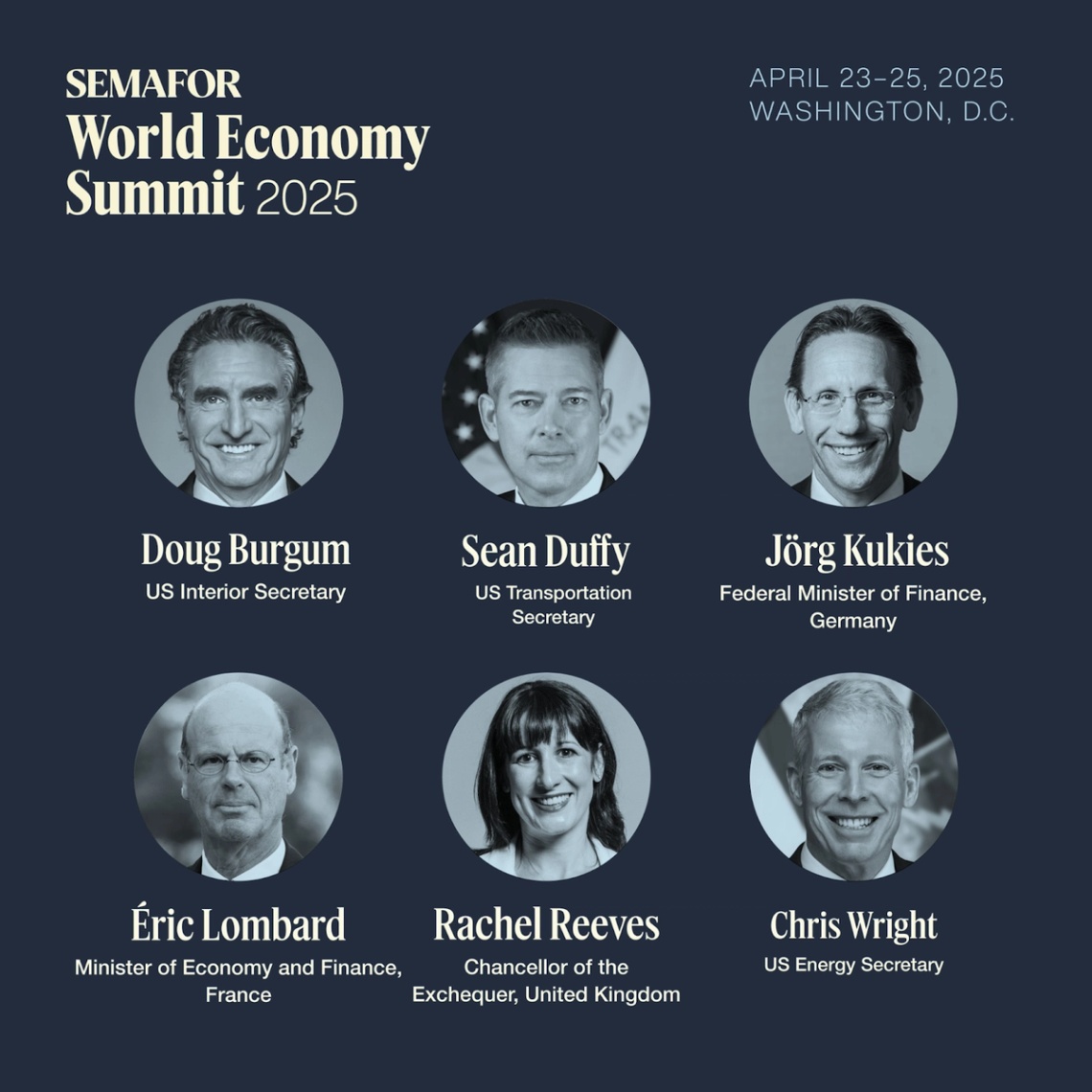 The World Economy Summit 2025 is bringing together the decision-makers who are shaping the future of global economic policy. The three-day summit, taking place from April 23–25, 2025 in Washington, DC, will focus on ways leaders across business, finance, tech, and beyond are navigating the complexities of tariffs, shifting trade dynamics, and evolving policy landscapes. Featuring on-the-record conversations with Doug Burgum, US Interior Secretary; Sean Duffy, US Transportation Secretary; Jörg Kukies, Federal Minister of Finance, Germany; Éric Lombard, Minister of Economy and Finance, France; Rachel Reeves, Chancellor of the Exchequer, United Kingdom; Chris Wright, US Energy Secretary, and more, the summit will facilitate in-depth discussions on how countries are adapting to these challenges and building resilience in a rapidly changing world. April 23-25 | Washington, DC | Learn More |